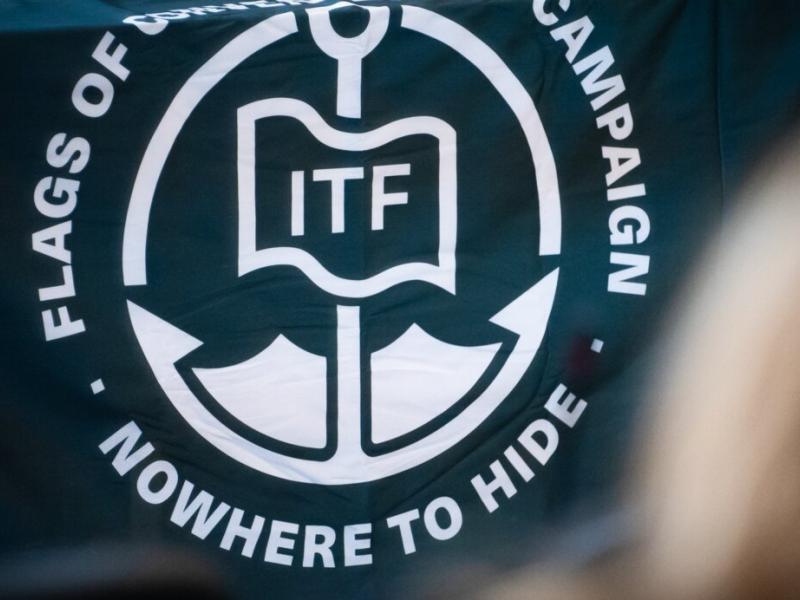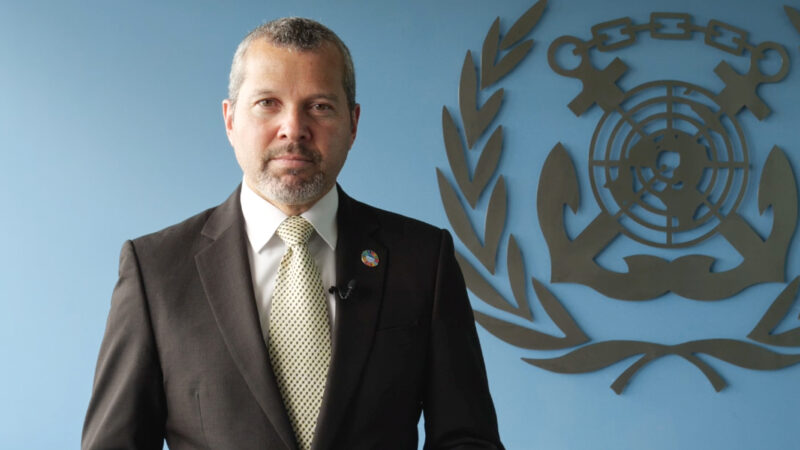GABON AND ESWATINI LISTED AS FLAGS OF CONVENIENCE
The International Transport Workers’ Federation (ITF) adds two new countries to its longstanding list of Flags of Convenience.
Two ship registries strongly associated with ‘dark fleet’ transportation – Gabon and Eswatini – are the latest additions to the ITF’s Flags of Convenience (FOC) list.
The additions are accompanied by the removal of Tonga from the 76-year-old list, bringing the total number of FOCs to 43.
“It’s a toxic industry – registering ships in countries where there is no regulation, no oversight and no accountability. It allows for exploitation and the abandonment of seafarers.
“The aim is to provide a short cut for shipowners to generate money without necessarily complying with best practice risk mitigation and due diligence through regulatory accountability said Paddy Crumlin, President of the ITF.
Companies often register ships in low regulation countries to hide ownership, reduce tax obligations, employ cheap labour or skirt safety standards – with profound implications for seafarers working on those vessels.
Some 50 percent of the world fleet is registered in FOC states. The top three contributors –Panama, Liberia, and the Marshall Islands – alone account for over 40 percent of the international fleet
The ITF defines an FOC vessel as one flying the flag of a country other than its actual ownership. This practice occurs despite international law – the United Nations Convention on the Law of the Sea – stating that there must be a “genuine link” between the ship and the flag state.
David Heindel, ITF’s Seafarers’ Section Chair, said: “The whole flags of convenience system is complex on purpose. The reasons for registering ships under flags of convenience is to avoid tax, avoid safety regulations, and circumvent labour standards and human rights.
“A genuine link between the ship and its registry is so important to be able to identify who is the real owner. Flag registers should not be allowed to operate as businesses using lower standards than traditional national registers. Until that’s stopped, seafarers’ rights will continue to be abused with impunity.”
Both Gabon and Eswatini’s registries are believed to be involved in the growing, so-called ‘shadow’ or ‘dark fleets’ transporting sanctioned oil. Gabon’s registry has grown exponentially since international sanctions came into effect following Russia’s invasion of Ukraine.
ENDS
NOTES
- The ITF’s Flags of Convenience list can be found here. For more information on the the ITFs’ campaign on this issue – first launched in Oslo in 1948 – see here.
- At the end of 2023, Cambodia was removed from the FOC list, with San Marino added.
- Under international law, ships must be registered with a single country, even though they often operate in international waters. The United Nations (UN) Convention on the Law of the Sea states that there must be a “genuine link” between the ship and the flag state. In reality, ‘genuine links’ between ships and flags often fail to exist.
- A ‘flag of convenience’ vessel is one that flies the flag of a country other than the country of ownership, at the same time adopting the regulations set down by that flag. The origins of the system lie in the United America Line using the Panama flag to circumvent prohibition in the 1920s.
- Flags of convenience offer countries without their own shipping industry a way to make easy money. The country can set up ship a registry and charge fees to shipowners, while having reduced standards for crew safety and welfare and often failing to live up to the responsibilities of a genuine flag state. The real ship owner (what the ITF calls the ‘beneficial owner’) benefits from having their identity hidden and adopting the often poor regulatory standards of the flag, which can also include no restriction on the nationality of a crew. In many cases, these flags are not even run from the country concerned.
- Eswatini’s registry opened in November 2023, taking in three vessels sanctioned for supporting Syria – later claimed by Eswatini to be de-registered – and also known to have transported Ukrainian grain from Russian-occupied territories.
- Tonga is removed from the FOC list due to the majority of its 18-vessel fleet being owned by Tonga, with the majority of the remaining vessels no longer being involved in trading activities.
Source : ITF




